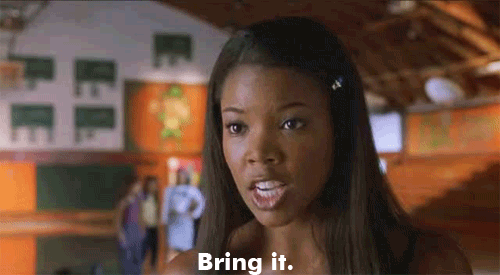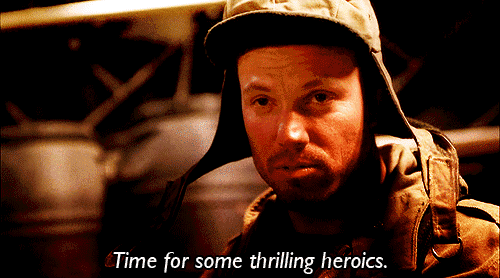I read a heck of a lot of email. (Rest of the world, staring slack-eyed at me: “…we all do, honey.”) I love reading great email from compelling writers: persuasive tactics, new formatting styles, tricks to make content “pop”, etc. I’m a pretty relentless thief, and I sure do love stealing other people’s good ideas and tactics.
But most of all I love reading emails that are less great and more… terrible. Not just in a schadenfreudey, can’t-look-away-from-the-train-wreck way, but because unsuccessful emails are a great way to learn what NOT to do.
Because here’s the thing: the most common mistakes are common because we all make them. Or at least, we do if we aren’t careful. Of all the mistakes I see in various nonprofit email programs, here are a few of my favorites…and how to avoid them:
#1 – Relying on statistics for emotional impact
It’s nothing new, and it’s not just about email: to persuade people, you have to connect with them emotionally. But it’s clear that some writers out there are convinced – convinced – that a good statistic is the best way to do this. They pile percentages on stats on data, certain that no one could possibly resist these numbers. Look at the numbers! Just look at them! I put some of them in bold! Doesn’t that solid logic just slowly, thoughtfully convince you that – no. Sorry.
Facts matter, and statistics are great for convincing people intellectually, but numbers are just not the way to kickstart an action of any kind. Emotion is the real powerhouse that convinces people to do things.

You need to remind people how much they truly care about [animals / the environment / women / your cultural institution / etc]. Rarely is this based on number-crunching.
tl;dr: Feels first, numbers second (or never). Make sure your statistics are playing a supporting role…after you’ve made the emotional connection, not before.
#2 – Being, well, boring
Dear First-Name, our fiscal year deadline is approaching and we need you more than ever. The budget negotiation has kicked off and this process requires full and careful review of budgetary figures vis-a-vis projected revenue in the coming fiscal year, especially with the declining cultural institution spending between FY12 and the present day. The attribution models demonstrate that without substantial…

Okay, I know I said just up there to inspire an emotion to get people to act. And boredom is technically an emotion, right? Still, not what we’re going for.
A ton of major email marketing faux pas fall into this category, actually, so I just rounded it up for simplicity’s sake. Some common ways this happens:
a: Skipping the concrete stuff and just using boilerplate rhetoric
b: Using a lot of jargon because you’ve forgotten your supporters are not experts or robots, but human beings with souls and not that much time on their hands
c: Not including enough detail or specifics, making it all too theoretical
d: Including far too much specifics and losing sight of the big picture
e: Not trying new things, and relying on the same ol’ same ol’, every single time
tl;dr: Try something new! Be interesting!
#3 – Getting real excited about how amazing the organization is and the supporter is just kind of, well, an afterthought
You probably have a lot to say about just how amazing your organization is. And that’s awesome, I love talking to people who are excited about the work they do.

But a fundraising email isn’t the X-Men, and we usually want to focus on one hero: the reader. If you’re always going on and on about how effective and amazing you are, as an organization, it means you aren’t paying attention to someone quite important: the person reading the email.
A fairly simple way of keeping track of this is counting up how many times you mention your organization’s name, and how many times you’re using the word “you.” Hint: it should be more of the latter and less of the former.
And it’s not just that they’re “supporting” you – they’re doing incredible things, in their own right.
Caveat: of course, you do still want to demonstrate that you are trustworthy, efficient, and effective, preferably with specific details that you’re using to back it all up. Just don’t turn that into some crazy brag-fest.
tl;dr: Write to an audience of awesome people.
#4 – Dreading editorial feedback
Writing copy is an act of bravery. I honestly think the only way to survive as a writer is to be, all, BRING IT ON.

Sometimes your copy gets reviewed by people who are genuinely making it worse, and that sucks. But a lot of the time writers (especially new writers) don’t want to have to admit that their first drafts are less than perfect, and can do things like take feedback personally, or semi-unconsciously not allow enough time for real substantive feedback.
Don’t deprive yourself of the opportunity to have someone tell you what’s wrong with your writing! Having someone who doesn’t live in your own head edit your work is an amazing way to bring your writing up to the next level. It’s especially helpful to put in specific questions to your editor to ask for feedback on elements you think are weaker, like, “Does this do a good job of explaining [complicated concept]?” or “Is this emotional or is it overwrought?”
For that matter, it’s a good idea to get in the habit of figuring out which parts of your email(s) are weakest, rather than thinking of them as these beautiful perfect snowflakes that fell from the sky and can never be improved upon.
tl;dr: Your editor is a friend. Criticism is critical in every sense of the word. Use them wisely.
#5 – Being shy about donation asks
Sometimes writers are embarrassed, I think, about asking for money. This makes them oddly roundabout about total essentials like stating the need you face, or even coming right out and making a direct ask.
This isn’t a tea party in the Victorian era where hinting discreetly at the idea of potentially wanting (whisper) money would lead to you and your conversation partner to fall into the fainting chair, and then the valet has to summon a footman to bring the smelling salts, and then the Dowager Countess says something pithy and mean. Be straightforward. You’re basically offering your supporters a chance to join your big, important cause by donating – don’t shy away from that.

tl;dr: Be straightforward about the need for money
I could probably go on for ages and ages about various other hiccups, oddities and overall less-than-amazing strategies but I’d say those are some of the main ones, at least in my experience.
Any more you’ve seen a lot of? Tell us in the comments! (But be nice, of course. This is a polite corner of the internet, after all.)
PS: When I told my sister I was writing this blog post, she wrote a fake mocking post on my behalf, which was, in its entirety, “Who knows what the biggest mistakes are? I never make them, because I am perfect. The end.” That made me laugh a lot.
And then I thought about all the times I’ve done these exact same things, and I stopped laughing. Then I went looking for Parks and Rec gifs and laughed some more.


